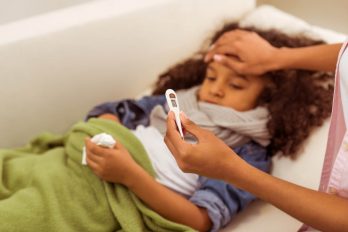Once fall arrives, children are spending more time indoors and at school where viral and bacterial diseases are easily passed from child to child via dirty surfaces, unclean hands, and unhygienic practices. While outbreaks of the stomach flu can certainly occur at any time during the year, the U.S. Center for Disease Control and Prevention cautions parents and health care providers that the most prevalent time of year for stomach bugs is from the late fall to early spring. Therefore, now is the time to look out for ways to prevent stomach bugs from passing through your household and to understand what you should do if they do arrive.
First, keep in mind that what you commonly call the stomach flu is not a type of influenza at all. In fact, it is generally a virus that causes something known as gastroenteritis. While traditional influenza brings respiratory complaints, gastroenteritis primarily affects the digestive system, causing nausea, vomiting, diarrhea, and stomachaches depending on the individual. Moreover, because gastroenteritis is not actually the flu, it cannot be prevented by the flu vaccine.
Second, you should know that stomach bugs are highly contagious and are difficult to prevent passing between family members. If the bug is in your house, try to keep the sick child in a separate room, and have him use his own bathroom if possible. Be sure to clean up with anti-bacterial wipes regularly. To prevent the bug from entering your house in the first place, teach your children to keep their hands away from their faces and to wash their hands thoroughly with soap and water as soon as they come inside.
Third, if your child does come home from school with the stomach bug, you should know that it will most likely run its course in 24 to 48 hours. Keep him at home and comfortable. Follow the BRAT diet, which includes bananas, rice, applesauce, and toast and stays away from hard-to-digest foods. In addition, keep him hydrated with specially formulated rehydrating liquids, such as Pedialyte.



